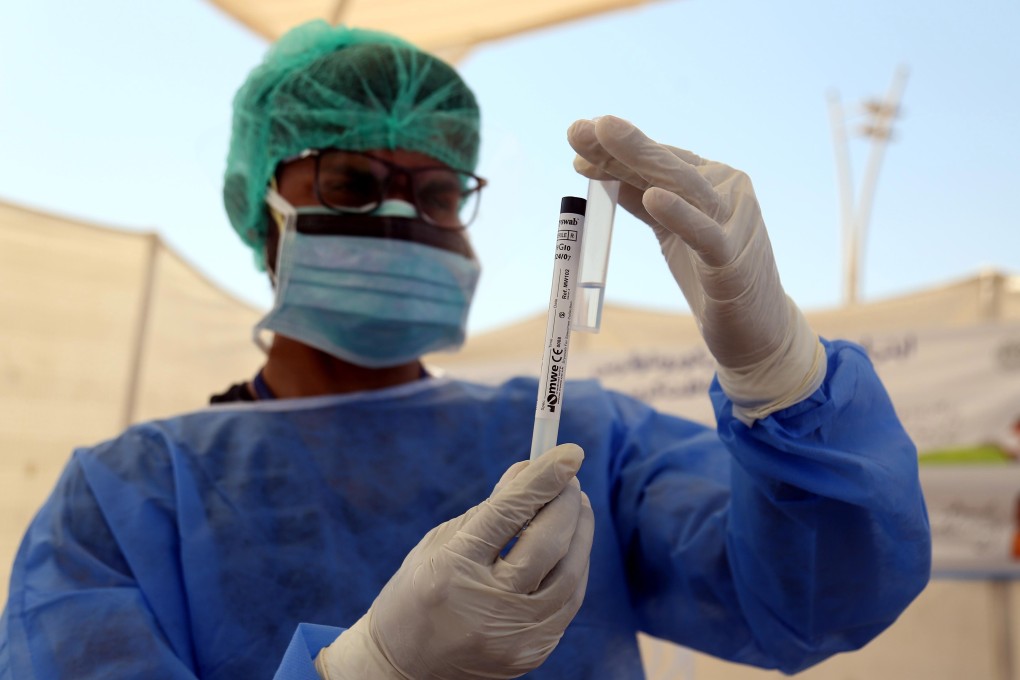Advertisement
Coronavirus: Pakistan struggles to track down 100,000 attendees of Tablighi Jamaat religious event
- Lack of records and slow rates of virus testing are hampering Pakistan’s ability to contain a feared mass outbreak linked to the religious gathering
- The health services ministry says it expects the number of Covid-19 infections to top 50,000 by April 25, causing between 5,000 and 7,000 deaths
Reading Time:3 minutes
Why you can trust SCMP

Pakistan authorities on Tuesday were struggling to track down some 100,000 people who attended a religious gathering in Lahore, the capital of the populous Punjab province, as the country’s number of coronavirus infections rose to over 4,000 and the death toll stood at 55.
Data released by authorities on Monday showed that more than 60 per cent of confirmed infections in Punjab – home to some 110 million people, more than half of Pakistan’s total population – were either pilgrims who carried the virus back from Iran, or Sunni Muslims who had attended the Lahore congregation held by the Tablighi Jamaat group in mid-March.
Tablighi Jamaat, one of the world’s largest Islamic missionary movements, has millions of followers and often sends preachers to countries to spread Islam’s ideas.
Advertisement
Despite the rise in coronavirus infections in the region, the group has continued to stage mass congregations, including in Malaysia and India, causing it to be blamed for spreading the Covid-19 disease across borders.
In Malaysia, a gathering organised by the Tablighi Jamaat on February 27 to March 1 was attended by 16,000 followers, resulting in at least 600 infections recorded across Southeast Asia, including Brunei, Singapore and Thailand. A Malaysian man who caught the virus after attending the event later died.
Advertisement
Advertisement
Select Voice
Select Speed
1.00x